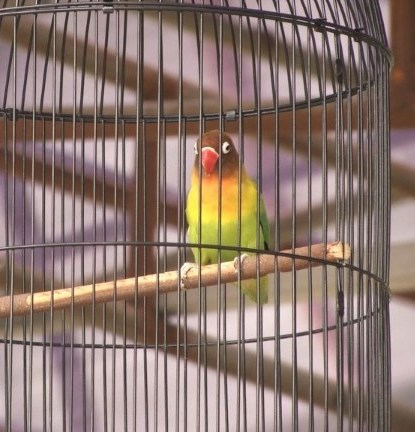Endangered Indonesian songbirds on the brink as forests plundered
Barely a few days old, perched on a nest of twigs inside an incubator, a newborn Indonesian songbird – cherished for its melodious chirp – tweets weakly as a tiny metallic ring is attached to its leg. The tag shows potential buyers the chick was bred in captivity. It’s an important symbol, which shows it was not trapped in the wild and smuggled, an illegal trade which sees birds packed in their thousands in shipping crates or stuffed in plastic bottles before being sold in giant avian markets in Indonesia’s major cities. Wildlife experts have declared Indonesia’s rampant bird trade more of a threat to many native species than habitat loss, and called for urgent intervention to stop the plunder.
The scale is massive. It involves millions and millions of birds every year. It’s just really reaching a point now, a critical point, where it’s now or never for a lot of these species.
Chris Shepherd, of wildlife trade watchdog TRAFFIC
The hatchling was born at Megananda Daryono’s vast aviary in Bogor, a city on the island of Java, where he runs a breeding programme that is a sustainable alternative to the roaring trade in birds caught in the wild. "I realised the birds being caught in the forest would one day be gone for good,“ Daryono told AFP. Capturing any native birds from the wild – whether they are protected or not – is illegal in Indonesia but law enforcement is lax, with fines and jail terms rarely handed out to traffickers or vendors at big markets, Chris Shepherd, of wildlife trade watchdog TRAFFIC, said.
This isn’t a beauty pageant, it’s a chirping contest. It’s chirping mania.
‘Chirping’ champion Johan

Indonesia birds